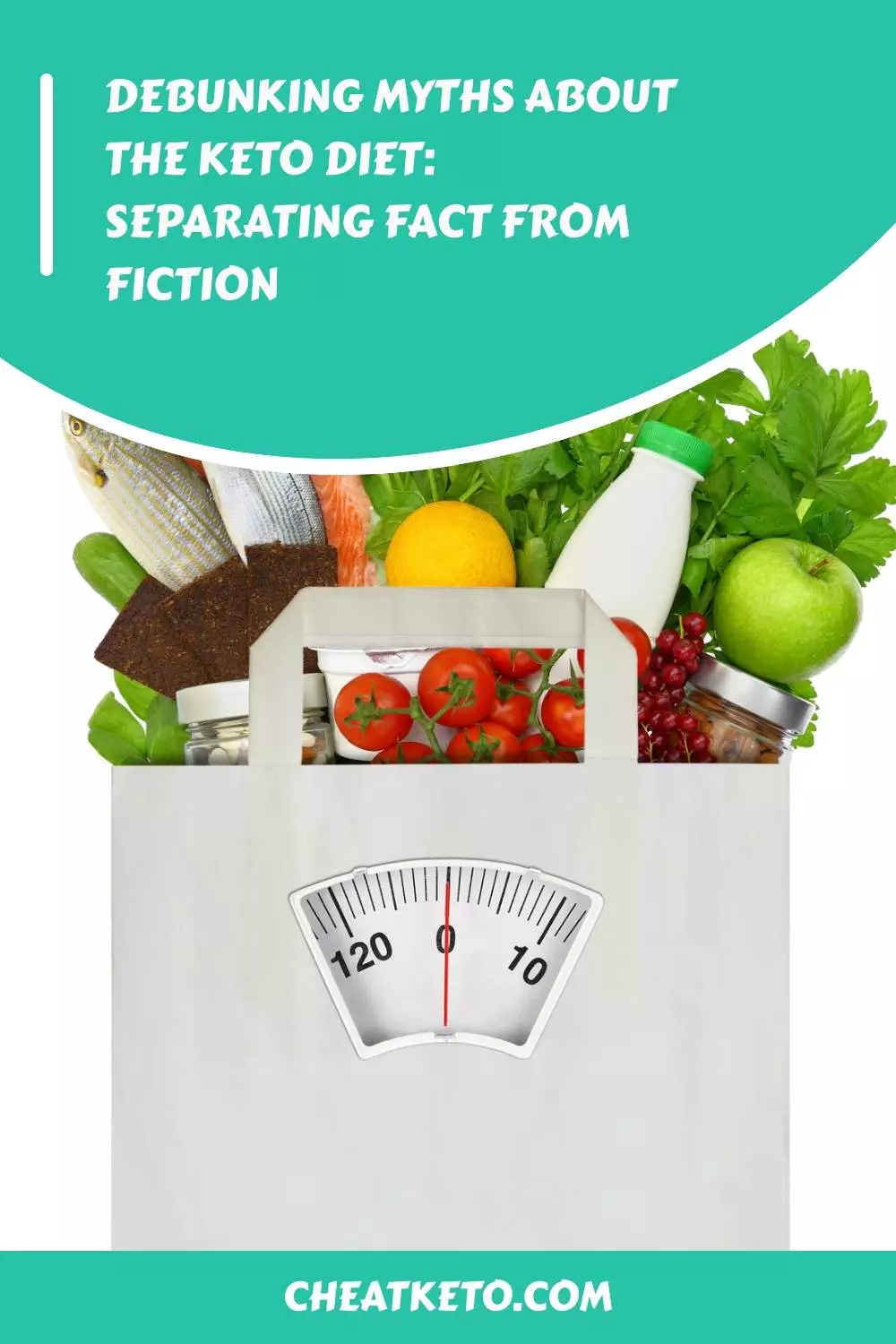
Debunking Myths About the Keto Diet: Separating Fact from Fiction
The ketogenic diet, or simply “keto” for short, has become increasingly popular in recent years. This low-carb, high-fat diet is designed to help people burn fat and lose weight by putting their bodies into a state of ketosis, where they use stored body fat as fuel instead of carbohydrates. However, despite its growing popularity, there are still many myths and misconceptions about the keto diet that persist. In this article, we’ll separate fact from fiction and help you decide if the keto diet is right for you.
Introduction to the Keto Diet
The keto diet involves drastically reducing your intake of carbs while simultaneously increasing your consumption of healthy fats and moderate amounts of protein. By doing so, your body enters a metabolic state known as ketosis, which can lead to rapid weight loss and improved overall health. The goal of the keto diet is to consume fewer than 50 grams of net carbs per day, with some experts recommending even lower levels depending on individual needs.
Common Myths About the Keto Diet Debunked
Despite its effectiveness, the keto diet has been subject to numerous myths and misconceptions. Here are just a few examples:
Myth #1: The keto diet is dangerous because it causes ketoacidosis.
Fact: While it’s true that ketoacidosis (a potentially life-threatening condition) can occur when someone consumes too little insulin while following a very low-carb diet, this is not something that typically happens during normal keto dieting. In fact, studies have shown that the keto diet actually improves blood sugar control and reduces the risk of type 2 diabetes.
Myth #2: You need to eat tons of meat and dairy products on the keto diet.
Fact: While animal products like meat and dairy do contain healthy fats, it’s possible to follow a vegetarian or vegan keto diet without any negative impact on results. Plant-based sources of healthy fats include avocados, nuts, seeds, coconut oil, and olive oil.
Myth #3: The keto diet will leave you feeling tired and sluggish all the time.
Fact: Many people report feeling more energized on the keto diet due to stable blood sugar levels and reduced inflammation. That being said, it’s important to make sure you’re getting enough electrolytes and minerals to support proper functioning of your cells.
The Science Behind the Keto Diet
There’s plenty of science behind why the keto diet works so well for weight loss and other health benefits. One key factor is that when you reduce your intake of carbs, your body stops producing as much insulin, which helps regulate blood sugar levels. When insulin production drops, your liver starts producing ketones, which are used as an alternative source of energy by your brain and muscles. Additionally, the keto diet has been shown to improve mitochondrial function, increase autophagy (cellular cleanup), and decrease inflammation throughout the body.
Benefits of the Keto Diet Beyond Weight Loss
While the primary benefit of the keto diet is often seen as weight loss, there are also several additional benefits associated with this way of eating. For example:
Improved cognitive function: Studies show that the keto diet may enhance memory and focus, possibly due to increased availability of ketone bodies to the brain.
Reduced cancer risk: Some research suggests that the keto diet could be effective at preventing and treating certain types of cancer, particularly those driven by glucose metabolism.
Better heart health: The keto diet has been linked to improvements in cholesterol levels, blood pressure, and other markers of cardiovascular disease.
Conclusion: Is the Keto Diet Right for You?
Ultimately, whether or not the keto diet is right for you depends on your personal goals, lifestyle, and medical history. If you’re looking to lose weight quickly and safely, while also enjoying potential benefits such as better cognition and reduced cancer risk, then the keto diet might be worth trying out. Just remember to consult with your doctor first and make sure you’re properly supplementing with electrolytes and minerals to avoid side effects.

